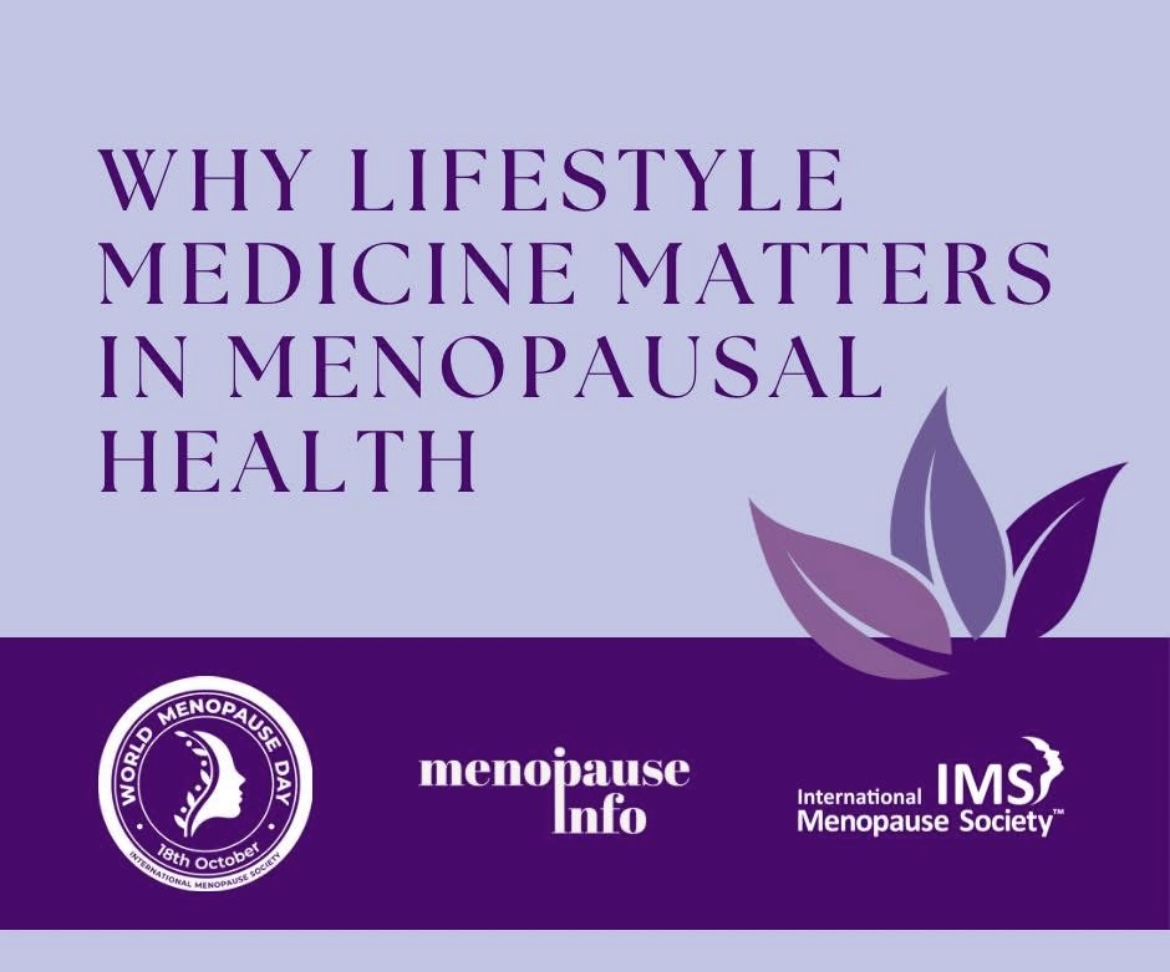World Menopause Day 2025


In 2009 The International Menopause Society assigned 18th October as a day to raise awareness of the issues women face during the menopause. This year’s theme was about Lifestyle Medicine and it’s role in Menopausal Health. I presented to the staff of Worcestershire Acute Trust and local hospitals in Worcestershire.
A different theme this year to promote how we can improve women’s health without using medications.
Healthy Eating
• Reducing ultra processed foods:
• Increase HDL (good) cholesterol & reduce LDL (bad) cholesterol
• Control our blood sugars/insulin levels
• Poor diet impacts mental health/coping, “Blood sugar swings”
• Improving overall wellbeing/health and reducing premature death
• Mediterranean diet
We’re offering a specific blood test to check your genetic heart risks, email us to find out more
Mental Health.
• Menopausal Symptoms and Mid-life is a stressful time
• Pressure to be “Super women”
• Exhaustion
• Menopausal symptoms less able to “cope”
It’s Important to know when your stress bucket is full and how to empty it.
Avoiding Risky Substances.
• Women’s bodies respond differently to men’s
• Female hormones affect how drugs, alcohol are metabolized
• Women often increase drug/alcohol intake to “cope”
• Alcohol affects sleep pattern/quality sleep, increasing vasomotor symptoms
• Have or suspect ADHD?
• Women have more body fat V less circulating water, produce less enzymes that breaks down alcohol
Restorative Sleep.
• Quality not quantity
• Waking feeling refreshed, alert and energized
• Menopausal symptoms impact sleep.
• Low Oestrogen reduces Melatonin affecting sleep
• Identify other causes that may impact sleep ie relationships problems, pain
Physical Activity and Menopause.
• Low female hormones:
• Increased waist measurements
• Reduce muscle mass
• Slow our metabolism
• Exhausted? Too tired exercise?
• Eat “naughty” foods for energy
Combination Cardio and Resistant Training are most effective
Healthy Relationships
• Being socially connected helps:
• Higher social integration=increases longevity
• Reduces risks diabetes, strokes
• Improves chronic diseases such as developing diabetes
• Eases vaso-motor symptoms such as hot flushes and night sweats
If you’d like to talk about any aspect of the menopause, arrange cardiac blood tests or any female hormone blood tests please email; enquiries@bourne2care.co.uk




